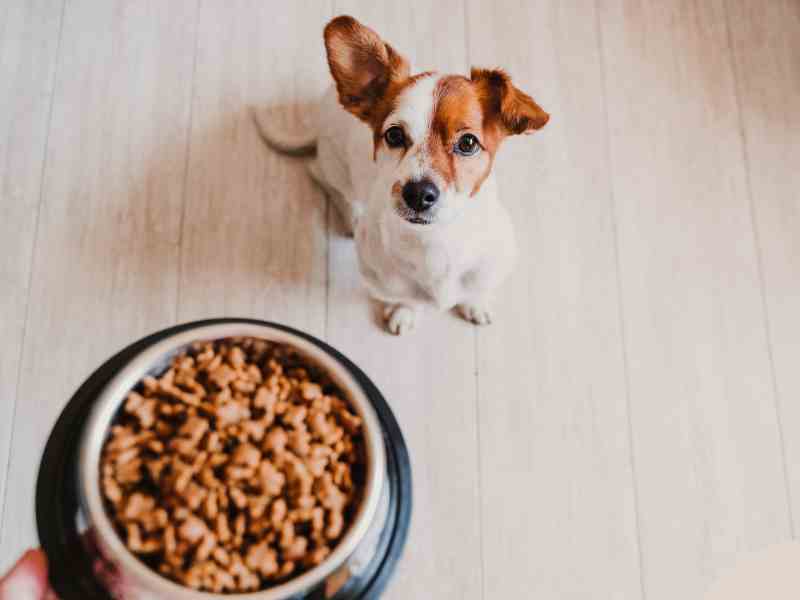Understanding a Puppy’s Digestive System: The Foundation of Their Health
A puppy’s digestive system is not just a smaller version of an adult dog’s; it is their own unique microbiome, and it is developing to be the basis for the dog’s digestive health for life. During their first year, puppies undergo lots of important physiological changes. Their digestive system changes as they transition from their mother’s milk to solid food. This period is critical for developing a healthy gastrointestinal tract that’s full of beneficial gut bacteria. In fact, your dog’s digestive tract is the beginning of creating a puppy microbiome that’s capable of handling various foods and absorbing essential nutrients for the rest of its life.
Research shows that the gut microbiota, a complex community of microorganisms living in the digestive tract, plays a vital role in a puppy’s good gut health. The gut microbiota affects everything from nutrient absorption to immune system development in puppies. This study highlights the importance of nurturing a healthy gut microbiome from a young age.
More, a puppy’s gut health is intertwined with their immune system. Research also suggests that a well-functioning digestive system is crucial for building a strong immune response. This is especially important as puppies are more susceptible to infections and diseases due to their developing immune systems–it shows that overall health is tied to their gut health from the start. That’s why everything your dog eats has the potential to build a healthy gut microbiome or to harm gut health, and being purposed in how you develop your puppy’s gut health is the key.
A Closer Look at a Puppy’s Digestive Anatomy
A puppy’s digestive system is obviously very similar to a more grown dog’s and develops every day from the second it’s born. A puppy’s digestive journey starts in the mouth. Here, teeth are designed to tear and chew dog food while their saliva begins the digestive process. Their esophagus then acts as a straw to move the chewed dog food to the stomach.
The stomach is a muscular organ that uses acids and enzymes to break down dog food. In puppies, the stomach is a superhero when it comes to digesting proteins and fats, which are crucial for that crazy fast growth they go through.
The small intestine is where the majority of nutrient absorption occurs. The small intestine is divided into the duodenum, jejunum, and ileum. Each section plays a role in digesting and absorbing different nutrients. Enzymes from the pancreas and bile from the liver help to continue to break dog food down so it’s absorbed the best it can be. The liver and pancreas are crucial in a dog’s digestive system. The liver produces bile, which is essential for fat digestion, while the pancreas secretes enzymes that break down carbohydrates, proteins, and fats.
The final stretch of a puppy’s digestive tract is the large intestine. It’s responsible for absorbing water and electrolytes. It also prepares waste products to be excreted as stool.
How Is A Puppy’s Digestive System Different?
A puppy’s digestive system differs from an older dog’s in several ways.
- Size and Capacity: A puppy’s digestive system is smaller and just has less space for food compared to an adult dog. That’s why puppies need smaller and more frequent meals those first few weeks and months. Their stomachs and intestines can’t handle large quantities of food that an adult dog can.
- Enzyme Production: Puppies produce different levels and types of digestive enzymes compared to adult dogs. These enzymes are geared more towards digesting the high-fat content found in their mother’s milk. Their enzyme production adjusts to more diverse diets as they grow but still differs from an adult dog’s.
- Digestive Efficiency: Puppies naturally have a less efficient digestive system to start. This inefficiency means that they may not absorb nutrients as effectively as adult dogs. As a result, foods that are nutrient-dense and easily digested are the best foods for puppies.
- Immature Gut Microbiome: The gut microbiome in puppies is still developing. It takes time to establish a balanced and diverse microbial population. But, this development is crucial for immune system development and overall health. Adult dogs typically have a more stable and resilient gut microbiome that can battle against harmful bacteria better than a puppy can.
- Tolerance to Different Foods: Puppies are often more sensitive to dietary changes and may experience digestive upset more easily. Adult dogs usually have a more developed gut health system that can tolerate a wider range of foods.
Puppy Nutrition: Tailoring Diets for Optimal Gut Health
In a puppy’s world, every bite counts toward health and their overall health! Dog parents choose foods for different reasons, but your pet’s gut health and nutrient absorption should be a driving force.
Why Choose Raw, Wet, or Dry Kibble?
- Raw Diet: Some dog parents opt for raw diets, as the belief is that raw diets mimic what dogs would eat in the wild. This choice is often considered the most ‘natural’ dog food option for puppies.
- Wet Food: Wet food can be more palatable and easier to digest for some puppies, so many puppy parents choose it as a transition food from their mother’s milk or for those with sensitive stomachs.
- Dry Kibble: Dry kibble is popular for its convenience, longer shelf life, and potential dental health benefits. It’s often recommended by vets as well.
When it comes to choosing the right type of dog food, veterinarians often recommend evaluating diets based on their nutrients rather than their ingredients. They recommend choosing diets based on dog needs, and building good gut health. While some vets worry about nutritional inadequacies in raw diets, others believe that wet food is more nutritious than dry, and others still believe that dry kibble can be as nutritious if not more than raw and wet and be more affordable as well.
Whatever your dog’s diet is, the key to overall health in puppies and dogs is to improve gut health as best you can. Dog gut health is an indicator of overall health.
Puppy vs. Adult Dog Diets
Puppies have different nutritional needs compared to adult dogs. They require more protein and fat to support their rapid growth and development. Puppies also need a balanced intake of calcium and phosphorus for healthy bone development. Vets recommend that their food should be high in calories and nutrients to meet their growing body’s demands.
Essential Nutrients for Puppy Gut Health
- Proteins: Crucial for growth and repair of tissues.
- Fats: Essential for energy and the absorption of fat-soluble vitamins.
- Carbohydrates: Provide energy and aid in digestion.
- Vitamins and Minerals: Vital for immune function and overall health.
- Fiber: Important for digestive health, aiding in regular bowel movements and nutrient absorption.
Care Tips for Puppy Gut Health: Nourishing Your Furry Friend Inside and Out
It’s not just about what they eat but their overall care and lifestyle. Here are some tips to ensure your puppy’s digestive system stays as happy and healthy as they are.
- Regular Feeding Schedules: Consistency is key. Stick to a regular feeding schedule. It helps regulate their digestive system and ensures they’re getting the right amount of food throughout the day.
- Portion Control: Puppies grow fast, but overfeeding can stress their little digestive systems. Follow recommended portion sizes based on their age, size, and breed. This helps prevent issues like obesity and gastrointestinal problems.
- Choosing the Right Food: Select a diet that meets the nutritional needs of your growing pup. Puppies require different nutrients in different quantities than adult dogs. Look for high-quality, easily digestible ingredients.
- The Importance of Hydration: Water plays a vital role in digestion. Ensure your puppy has constant access to clean water. Proper hydration helps food digestion and nutrient absorption, keeping their digestive tract moving smoothly.
- Exercise for Digestive Health: Regular exercise is crucial. It not only keeps your puppy fit but also aids in digestion and their best mental health. Regular exercise can help reduce the risk of digestive disorders in dogs.
- Monitoring Health: Keep an eye out for any changes in your puppy’s eating habits or stool. Early detection of digestive issues can prevent more serious problems.
- Regular Veterinary Check-ups: Regular check-ups can catch potential health issues before they become serious. Your vet can also provide personalized advice based on your puppy’s specific needs.
Preventing Common Gut Health Issues in Puppies
With their still-developing guts, puppies can often face digestive troubles like diarrhea, constipation, and bloating. These come from various causes, like dietary changes, stress, or infections. Introducing new foods gradually is important to prevent upsetting their sensitive stomachs.
It’s also super important to pay attention to what your puppy puts in its mouth. Their curiosity can lead them to put things that can cause blockages and obstructions in their mouths. This can be very dangerous and lead to surgery or even death.
Recognizing and Addressing Gut Health Problems
Being in tune with your puppy’s health is important. Watch for changes in their appetite, poop consistency, energy levels, vomiting, excessive gas, or weight loss, as these can be signs of gut health issues in puppies. If you see any of these symptoms, you can safely assume your dog’s gut health is not in its best shape and could use support. If any of those symptoms don’t get better or worsen for your puppy, you should consider talking with your vet immediately.
Supporting a Healthy Puppy Gut Microbiome
A healthy gut microbiome in your puppy is like creating the perfect setting for the best gut health as an adult. In addition to good food and regular exercise and mental activity, it involves making sure they have good probiotics, prebiotics, and dietary fibers in their diets too. Probiotics help introduce beneficial bacteria and keep harmful bacteria in balance and prebiotics act as their nourishment and food. Dietary fibers help with overall gut and poop health. A well-balanced diet rich in fiber, prebiotics, probiotics, and digestive enzymes may be the easiest way to build your puppy’s best gut health!


